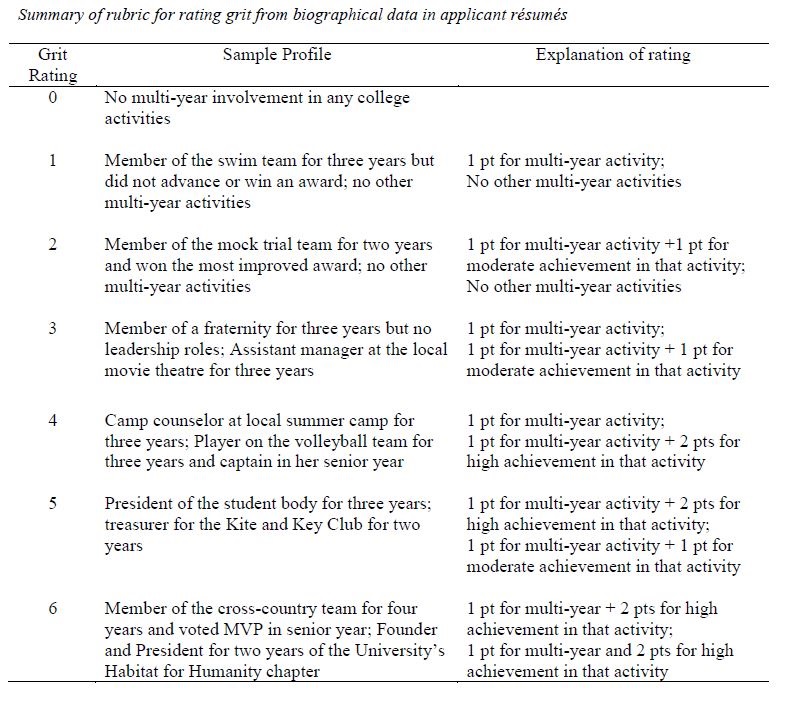Grit has worked its way into every cranny of the education
debate, and it’s no wonder. A bundle of explicitly non-cognitive traits
associated with perseverance in the face of adversity, grit is inherently
appealing to a country that aims to reward effort over mere ability.
But does grit matter
for teaching and if so, how?
In 2009, Angela Duckworth, the MacArthur ‘genius’ prize-winning
researcher who invented the concept of grit, published a preliminary study
showing that teachers’ self-reports on how gritty they were seemed to predict
how much their (generally disadvantaged) students learned. But since one could
readily imagine teachers inflating how gritty they were, the study’s results
could only be taken as suggestive.
Her latest study, True
Grit: Trait-level Perseverance and Passion for Long-term Goals Predicts, co-authored
with Claire Robertson-Kraft, addresses this issue by attempting to objectively
measure teacher grittiness. The study applies a seven-point rubric to evaluate
grit from information on extracurricular activities and work experience
extracted from teachers’ resumes, assigning points to teachers based on how
long they stuck to an activity and how successful they were in it.

After analyzing 461 novice teacher resumes from an unnamed
alternative certification program, the researchers found that teachers retained
for the duration of a school year had higher grit ratings than teachers who
resigned during the school year. Teachers who were rated effective in raising
student performance also had higher grit scores than less effective teachers. By
contrast, other characteristics of teachers — demographic characteristics, SAT
scores, college GPAs and ratings of leadership experience garnered from
interviews — were not associated with teacher retention or effectiveness.
As the authors themselves note, this was far from a typical
sample of teachers– they were all in an alternative certification program and had significantly higher SAT scores than the national average.
Nonetheless, the findings certainly warrant further investigation into what
non-cognitive traits predict the effectiveness of those who want to enter the
classroom.
Someday, perhaps, the grit score of an applicant to a teacher
preparation program or school district will be just as important as his or her
score on the SAT.
